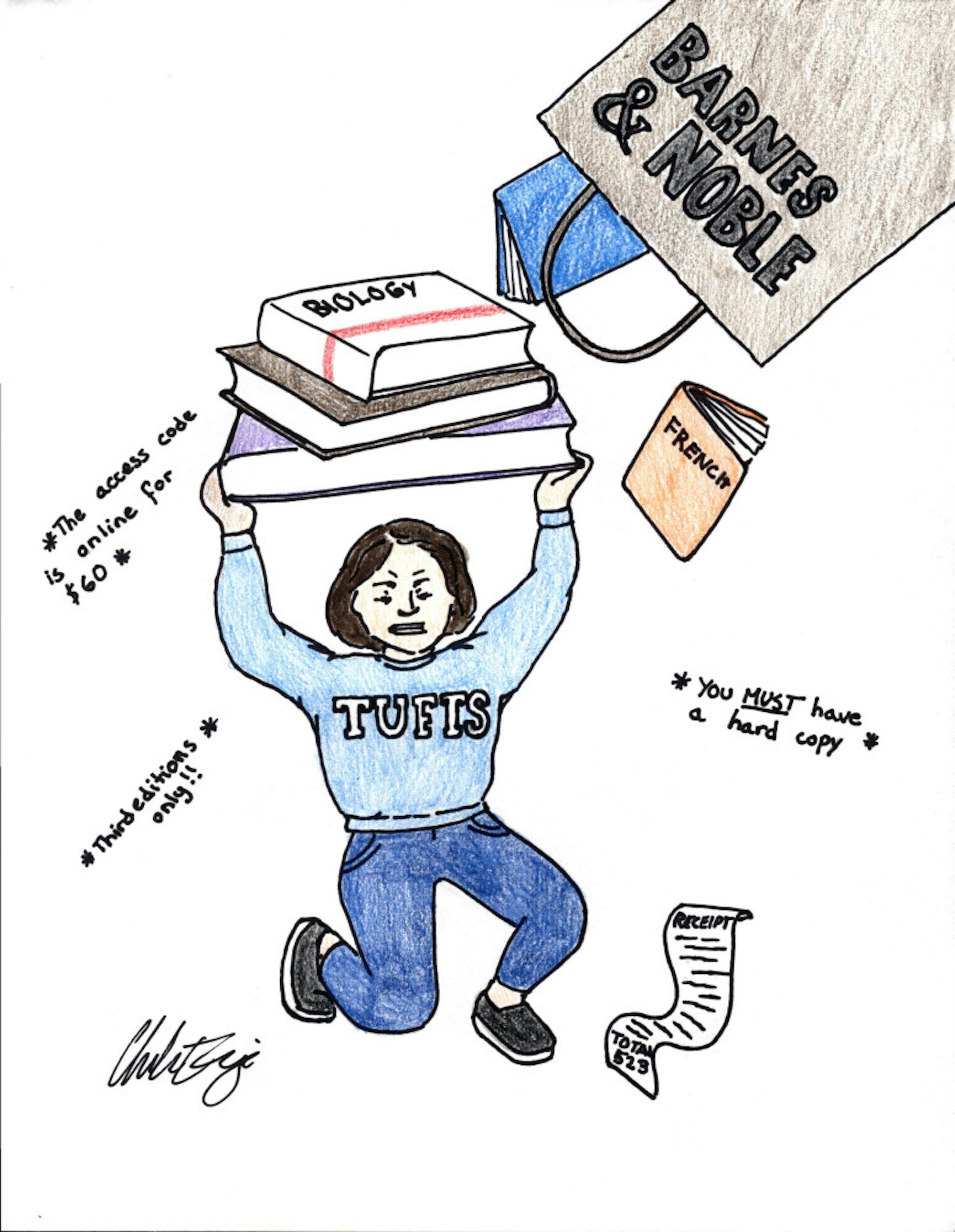You recognize the Barnes & Noble brown paper bags: the ones you’ve seen in the hands of passing students who’ve just purchased their psychology and Spanish textbooks or littering the recycling bins in your dorm. If you’re lucky enough, you might not have had to carry one of these bags, having found your books on Amazon or at the Tufts Community Union (TCU) textbook exchange. For many students, however, the Tufts University Bookstore in the Campus Center, operated by Barnes & Noble Education, is both a reality and a necessity.
Over 770 colleges across the country have partnered with Barnes & Noble College (BNC), which separated from the Barnes & Noble umbrella in 2015 with its parent, the publicly-traded Barnes & Noble Education. The bookstore provides both “retail and digital education experiences," according to its website.
The company has poured vast resources and effort into these relationships, making a point to emphasize the “Gen Z” shopping experience and make shopping for textbooks more engaging. “As the industry has shifted to digital, it pushed us to adapt and innovate faster and develop new products and services that will serve the markets in new ways,” Lisa Malat, BNC’s chief operating officer, told the National Retail Federation.
One of the main ways BNC has tried to appeal to a younger demographic is by providing many of its services online or what it calls “inclusive access,” meaning learning materials that can be delivered digitally. While the company may be making strides in making its resources more accessible through different mediums and attempting to transform storefronts into “social hubs,” the issue of affordability still looms large over many students at Tufts.
Tufts prides itself on its financial aid policies, giving out a reassuring statement to applicants: You worry about getting in and we will ensure that you can afford to go here. The university has made strides to improve affordability on campus, and yet, the partnership with BNC raises a gnarly question: If affordability is at all a priority, why partner with a for-profit, shareholder-driven company to deliver textbooks at the heart of our campus?
Textbook costs add up very quickly, with many students spending hundreds of dollars on educational material in one semester, and it is difficult to believe that among so many individuals with the power to shape student life so greatly, none have taken steps to address an issue that affects a large part of the Tufts community. When changes have been made, the credit belongs to TCU.
Students that require large amounts of financial aid to attend Tufts have done the work to get here, just like the rest of the Tufts community, but are put at an institutional disadvantage even before having the opportunity to dive into their classes. That students have to actively worry at all about the textbooks that are considered essential for their learning is concerning.
But Tufts is not entirely to blame. The price of textbooks has truly skyrocketed. According to Follett, a corporation that provides educational products and services, textbook prices have shot up 812% since 1978, more than double the 293% cumulative inflation for this period. In response, students have sought free alternatives, often sharing or borrowing.The National Association of College Stores reported that college students spent an average of $415 on required textbooks for the 2018-19 school year, down from recent years.
This brings us back to BNC. The role our campus bookstore plays is a central one, as it is often a student’s first point of contact for textbook requirements.A link from Tufts’ Student Information System leads directly to BNC, and it is often the default option for students purchasing their class materials. BNC practices price matching, but the onus cannot be on the student to fight for affordability in every class.
If Tufts wishes to continue its relationship with BNC, it must be completely on our terms. As a non-profit, Tufts has a responsibility to its mission and its students. As a publicly traded company, BNC isn’t out to scam Tufts students, but its primary responsibility is to its shareholders. These ethoi stand fundamentally at odds with one another, and the burden falls on Tufts to make affordable textbooks the default option and apply the necessary pressure to ensure BNC complies.
Fight for your students, Tufts, and don’t roll over because Barnes & Noble offers to sell notebooks or plush toys with your logo.
Editorial: Tufts must fight for fair prices for its students






